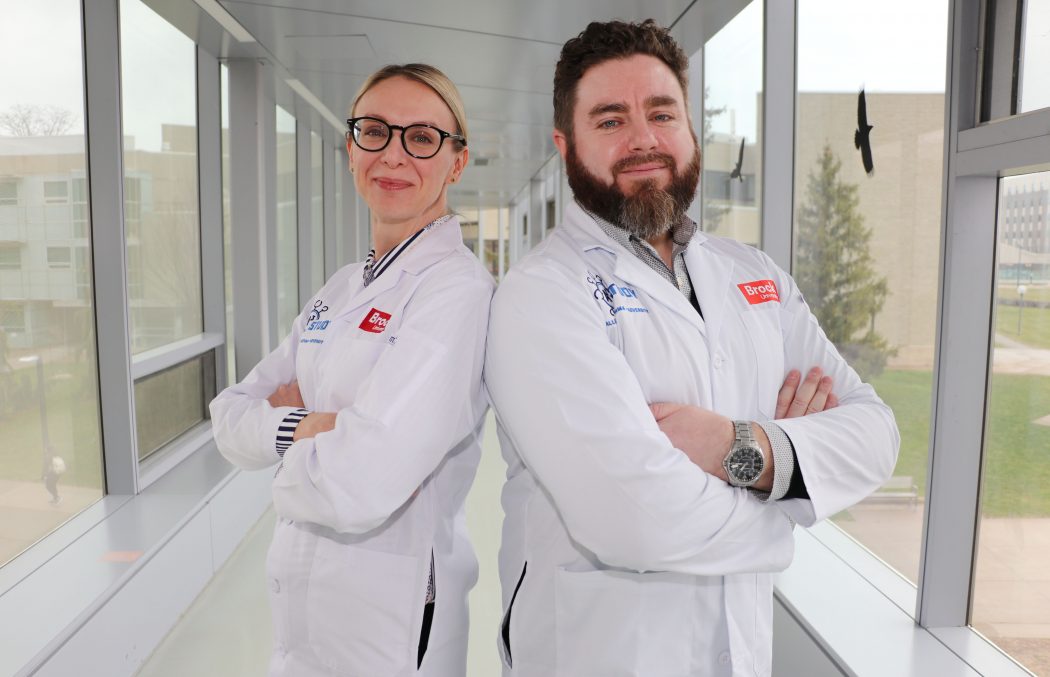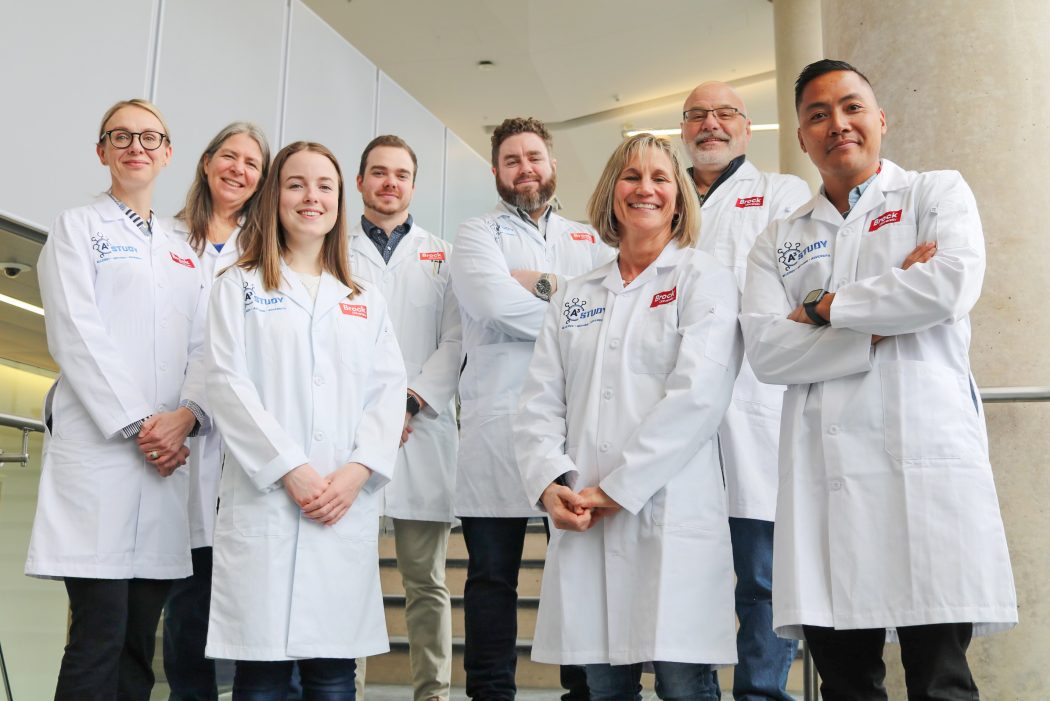 A Brock University research team is exploring whether early life events and upbringing contribute to the development of allergies and asthma.
A Brock University research team is exploring whether early life events and upbringing contribute to the development of allergies and asthma.The composition of good microbes harmoniously living in our bodies could be shaped by early childhood experiences, one of several physiological connections a Brock team is exploring in their research on allergies.
Associate Professors of Health Sciences Adam MacNeil and Karen Patte are heading up a team exploring whether early life events and upbringing contribute to the development of allergies and asthma.
But they need a few hundred research participants of diverse backgrounds to be able to fully explore the topic.
The researchers are looking for people ages 18 to 25 years in the Niagara area, with no allergy or asthma diagnosis necessary.
Participants would need to answer online questionnaires and come to Brock to undergo physical measurements and provide bodily samples.

Associate Professors of Health Sciences Karen Patte (left) and Adam MacNeil (right) are co-leading research exploring whether early life events and upbringing contribute to the development of allergies and asthma.
One of these samples is stool, which MacNeil says holds valuable clues to connections among the brain, gut and immune system.
“If we’re able to identify that a particular species of microbe in the gastrointestinal tract could influence the likelihood of developing allergies or asthma, we can potentially intervene, perhaps with the development of a screening tool,” says MacNeil.
“We encourage people not to be put off by this part of the research,” he says. “The collection and submission process takes place at home and is easy and discreet. These small samples will give the research team a great deal of information.”
Research participants will receive $50 for their involvement as well as a chance to win an iPad.
For more information, and to sign up to participate, contact Allergy Asthma and Adversity Study Co-ordinator Katie Hunter.
Patte, Canada Research Chair in Child Health Equity and Inclusion, says about 100 people have participated in their research so far — an excellent early response — but many more participants are needed, especially males who’ve been underrepresented thus far.
“We’re also looking at many different factors that could be protective against the development of allergies and asthma, such as diet, physical activity and social supports,” she says. “Our research could contribute to possible medical, psychological or social interventions.”
MacNeil and Patte’s first-of-its-kind study explores if and how experiences in childhood hypersensitize the immune system and set the stage for a lifetime of suffering with allergies.
They are co-leading the seven-member team that was awarded the Canadian government’s New Frontiers in Research Fund (NFRF) in 2021 for their project “Allergenicity from Childhood Adversity.”

A research team headed by Associate Professors of Health Sciences Karen Patte and Adam MacNeil is studying whether early life events and upbringing contribute to the development of allergies and asthma. From left: Patte; Assistant Professor of Health Sciences Valerie Michaelson; Research Assistant Katie Hunter; PhD student Robert Crozier; MacNeil; Professor of Health Sciences Deborah O’Leary; Professor of Health Sciences Terrance Wade; and Associate Professor of Kinesiology Val Fajardo.
The other team members include Professors of Health Sciences Deborah O’Leary and Terrance Wade, Assistant Professor of Health Sciences Valerie Michaelson, and Associate Professor of Kinesiology and Canada Research Chair in Tissue Re-modelling and Plasticity throughout the Lifespan Val Fajardo.
“Allergy prevalence is rising rapidly and understanding why requires new transdisciplinary thinking, outside the box,” MacNeil says. “Many of the contributing factors remain elusive.”
Patte says the team is “taking a unique approach by linking sociology and psychology with immunology and physiology — fields that seldom collaborate — to help determine the mechanisms linking childhood adversity and allergies.”








